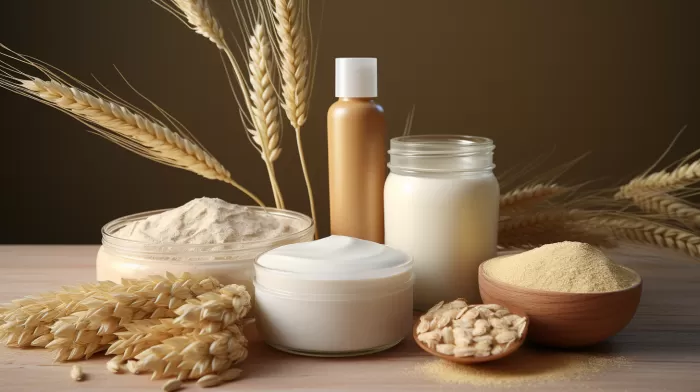If you suffer from gluten intolerance, or celiac disease, it’s well-known that you need to pay close attention to the food you eat. But did you know that you may also need to be cautious about the cosmetics you use?
A study presented at a meeting of the American College of Gastroenterology brought attention to the fact that many cosmetics, including lip balms, lotions and face creams, contain ingredients derived from sources containing gluten. Yet, few companies offer detailed lists of their ingredients, making it difficult for celiac sufferers to know for sure whether these products are safe for use. Even more concerning is that none of the ten biggest cosmetic manufacturers in the U.S. have products that are gluten-free.
Hidden Dangers in Your Cosmetics
It’s alarming to think that gluten-containing cosmetics could inadvertently be obtained and used by those with celiac disease, leading to a worsening of their condition. Some common cosmetic ingredients containing gluten include:
- Hydrolyzed wheat protein
- Wheat amino acids
- Wheat bran
- Vitamin E derived from wheat germ
On top of these wheat-based ingredients, there are also substances derived from other gluten-containing grains, such as rye, barley, and millet, that could potentially harm those with celiac disease.
Oats: To Use or Avoid
While oats are often considered safe for individuals with celiac disease, contamination with gluten-containing grains is not uncommon. In some cosmetics, oats are listed as avena sativa — these seemingly harmless ingredients may still pose a risk for individuals with celiac disease or an extreme sensitivity to gluten.
To be safe, it’s crucial to ensure that the oats in your cosmetic products are sourced from a gluten-free facility or are certified gluten-free.
Deceptive Labels: When “Natural” Isn’t Enough
In an effort to be more conscious of the products they put on their skin, many individuals seek out “natural” or “organic” cosmetics. However, this label alone doesn’t guarantee the product is free from gluten-containing ingredients. Even all-natural products can contain wheat or other grains that pose a risk to those with celiac disease.
When looking for gluten-free cosmetics, it’s vital to study the ingredient list rather than relying on the “natural” or “organic” label. Be sure to look for products that are explicitly labeled as gluten-free.
Your Skin Is Not a Barrier
To those with celiac disease, it may seem counterintuitive that your skincare products can cause such harmful effects, especially when gluten is something that typically impacts the gut. However, skin can absorb certain substances, and those prone to dermatitis herpetiformis — an itchy, blistering skin condition associated with celiac disease — need to be especially cautious.
In some cases, gluten-containing cosmetics may lead to a flare-up of this skin condition. Moreover, if you were to accidentally ingest any of the product (e.g., from a lip balm), it could be damaging to your overall health.
How to Shop for Gluten-Free Cosmetics
Armed with your newfound knowledge of hidden dangers in cosmetics, you’re likely wondering how you can shop for gluten-free products. Here are a few tips to ensure you’re buying the right items for your skin:
- Explore specialty stores: There are many stores and online shops that specialize in natural products and cater to those with specific allergies. Do a quick search for stores dedicated to gluten-free products, and you’ll likely find a safe selection of cosmetics.
-
Read the label: Even logos like “organic” or “all-natural” don’t guarantee a product is gluten-free. Familiarize yourself with the various ingredients derived from gluten-containing grains. Learn these common hidden sources of gluten and gluten-free skincare so you can steer clear from products containing them.
-
Seek certifications: When shopping for cosmetics, look for products labeled gluten-free and backed by third-party certifications. While brands may not be required to disclose gluten content, many choose to be transparent in order to cater to their customers.
-
Contact the manufacturer: If you’re still unsure, give the manufacturer a call to inquire about the source of their ingredients. Most companies are more than happy to share information about their products.
In Conclusion
Whether you suffer from celiac disease or have a sensitivity to gluten, it’s vital to be wary of all-of-a-sudden dangers lurking in seemingly innocent cosmetic products. By staying informed and educated on the ingredient lists of your daily skincare and beauty regimen, you can protect your skin and avoid potential harm.



